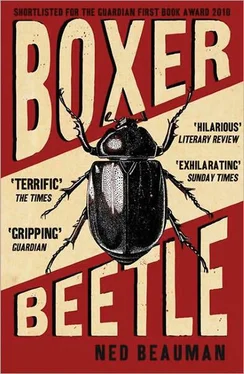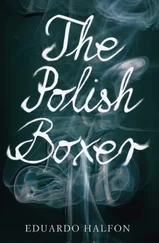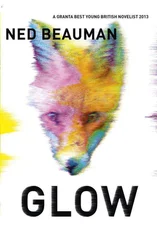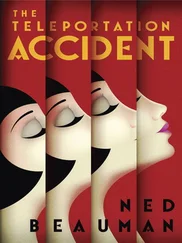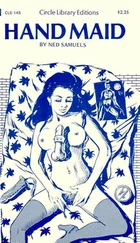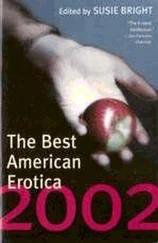‘Oh, you’ll never guess who else might come.’
‘Who?’
‘The Bruiselands.’
‘Leonard Bruiseland?’ said Erskine. This was their father’s second cousin.
‘No, I mean the whole family.’
‘All of them?’
‘Not the wife, of course. But all the rest. It’s an utter disaster.’
It was, indeed, an utter disaster. But at least now Sinner’s presence would more than make up for his father’s inevitable bad mood and for the terrible Bruiselands. He went into the laboratory, and remembered that there was still the problem of the cracked glass. Could it have been Mrs Minton? But the door to the laboratory was always locked when she came up. As he stood there, puzzled, he became aware of a loud, repeated clicking. It was coming from the very same case. He bent down again, and could hardly believe what he saw. A beetle was smashing itself again and again against the glass, its movements jerky and unreal like the skip of a gramophone needle. Each time, the glass shuddered and the crack grew wider. And just then, as he watched, the beetle shot out of the case with an explosion of glass and soil and flew straight for the opposite table, on which there was a sack of live earthworms that Erskine had ordered from a fishing shop in Richmond. It punctured the bag with a meaty thud and then the bag began to shiver. Erskine screamed.
‘Roach! Roach! Come, for God’s sake!’
Sinner came in and stared at the bag.
‘Get it out!’
‘Get what out?’
‘The beetle. Get it out of there before it gets away. But don’t kill it.’
‘How am I supposed to do that?’
Erskine wasn’t sure. A better solution occurred to him. ‘Get the big box from my bedroom and shake out all my clothes on to the floor and then bring it in here.’ This was his tuck box, a heavy oak casket with a lock in which he had kept sweets and biscuits and money while he was at Winchester, where he had often fantasised about locking himself inside until term ended. It had once belonged to his grandfather.
Sinner, following Erskine’s frantic orders, put down the tuck box, took the lid off the broken glass case — ‘Oh, so I’m allowed to touch this bleeding thing now, am I?’ — picked it up, tipped the soil and the other beetles into the tuck box, picked up the sack of worms, stuffed it down on top of the soil, shut the tuck box, and sat down heavily on its lid.
‘What was that, then?’ said Sinner afterwards.
‘That was Anophthalmus hitleri ,’ said Erskine, going to get the key to the box. He saw that a sliver of glass was still embedded in his palm. ‘The first of the species.’
Erskine knew he ought to perform some proper tests on the specimen, and tomorrow he would. But in his heart he already knew that he had succeeded. In so little time, he had done it. With the help of his theories, his experiments, and also, in some less tangible way, his nightly examinations of the boy, he had bred this beetle as mighty as a rat or a dog, this Seth Roach among insects, this creature of snuffed candles and iron railings and dried blood crushed up in the fist of science, and it still had the deconstructed swastika on its wings, prouder than ever. He had proven his genius. He imagined vast maternity wards named after him, babies doing calculus and callisthenics in their first weeks of life. He imagined himself dictating his autobiography to a diligent male secretary. He imagined his eighty grandchildren, free of even the faintest smut on their characters. He imagined himself inside the tuck box with the worms and the beetles. He hurried into the kitchen for a glass of water.
That evening, as a tepid April rain fell on London with all the sincerity of a hired sales gimmick for umbrellas, he cleared his desk of pamphlets on Pangaean and sat down to write a letter to Herr Hitler in which he would enclose a single preserved specimen of the beetle. Hitler, of all people, would understand Erskine’s work: this magnificent leader for whom hunched shoulders, spindly legs and slack mouth were all an irrelevance, a spelling mistake that could not obscure the meaning. In fact, thought Erskine, Hitler might have no personal use for his theories: when the Führer impregnated some ravishing blonde before breakfast he could probably push the zygote to apotheosis by sheer force of will. But he would still see the importance of lemniscate breeding to a rational future, and would surely smile at the tiny tribute that Erskine had paid by giving his name to this beautiful new species, uninterested in the inevitable quibbles from the International Commission on Zoological Nomenclature about whether Anophthalmus hitleri was distinct enough from Anophthalmus himmleri to have its own official classification. So Erskine didn’t care that there was only a remote chance that such a busy statesman would find the time to sit down and read some Englishman’s obsequious letter, let alone reply. He would write anyway.
When I am in a stressful situation, I often like to ask myself: what would Batman do in my place? I find Batman so inspiring — his intelligence, his tenacity, his self-sacrifice — that it sometimes makes me slightly tearful. But the trouble is, it’s hard to imagine Batman in a Little Chef.
I don’t mean that flippantly: it’s a fundamental problem. Most of the places where I spend most of my life — NHS doctors’ waiting rooms, the local twenty-four-hour corner shop, Happy Fried Chicken, my ex-council flat, the tarmac playground down the road where I go when I want to sit down in the fresh air — seem to distill their peculiarly English ambience from that feeling you get when your mother wipes snot from your nose with her sleeve on the bus. In fact, both the shipwrecks of stained municipal concrete that dominate my neighbourhood and the shabby little concerns that grow like mould in their interstices might have been deliberately designed to exclude my vengeful hero.
On a practical level, people forget that Batman doesn’t just look cool next to art deco architecture, he is closely adapted to it. It’s a lot easier to scale a building covered in cornices, spires, arcades and geometric gargoyles than one whose sole bit of ornamentation is a supermarket shopping bag snagged on a weatherproof plastic anticlimb Prikla Strip. (Superman, by contrast, has his famous power of flight, which has long since skipped the jurisdiction of Newton’s laws; consequently, he is serenely indifferent to niggling physical context. This is the second reason why he is closely harmonised with Corbusian architecture; the first, and more obvious, being his not-quite-human faith in human perfectibility. And that’s funny, in a way, because of course if there’s one man who really could build the Radiant City, it’s Lex Luthor.)
But that’s not really the point. The point is the total lack of glamour. These places aren’t even dirty in quite the right way. Batman would look ridiculous. He would get chewing gum stuck on his boots. That can’t happen. And meanwhile Grublock’s lustrous developments are for people whose main form of villainy is complicated campaigns of perfectly legal tax avoidance, so they’re no use either.
All in all, then, you will understand how happy I was when I escaped from the Welshman in my flat, doing exactly what Batman would have done, I think, if he were one of the world’s six or seven hundred trimethylaminuria sufferers rather than one of the world’s six or seven greatest martial artists; and you will understand how happy I was when I measured up to Batman for the second time in a row as I sat there in the Little Chef.
We had been driving west on the M3, past great drizzly industrial estates where men in overalls tended economies of scale like oxpeckers on a rhino. I was handcuffed to the dashboard cup holder. The motorway reminded me of the block of flats where I live, the way the brawny concrete seemed designed specifically to resist the mortal urge to modify one’s own surroundings. At an intersection near Winchester we slowed for a moment beside a fenced-off triangle of waste ground, and I saw a man in a bloodstained suit limping through the tall grass.
Читать дальше
